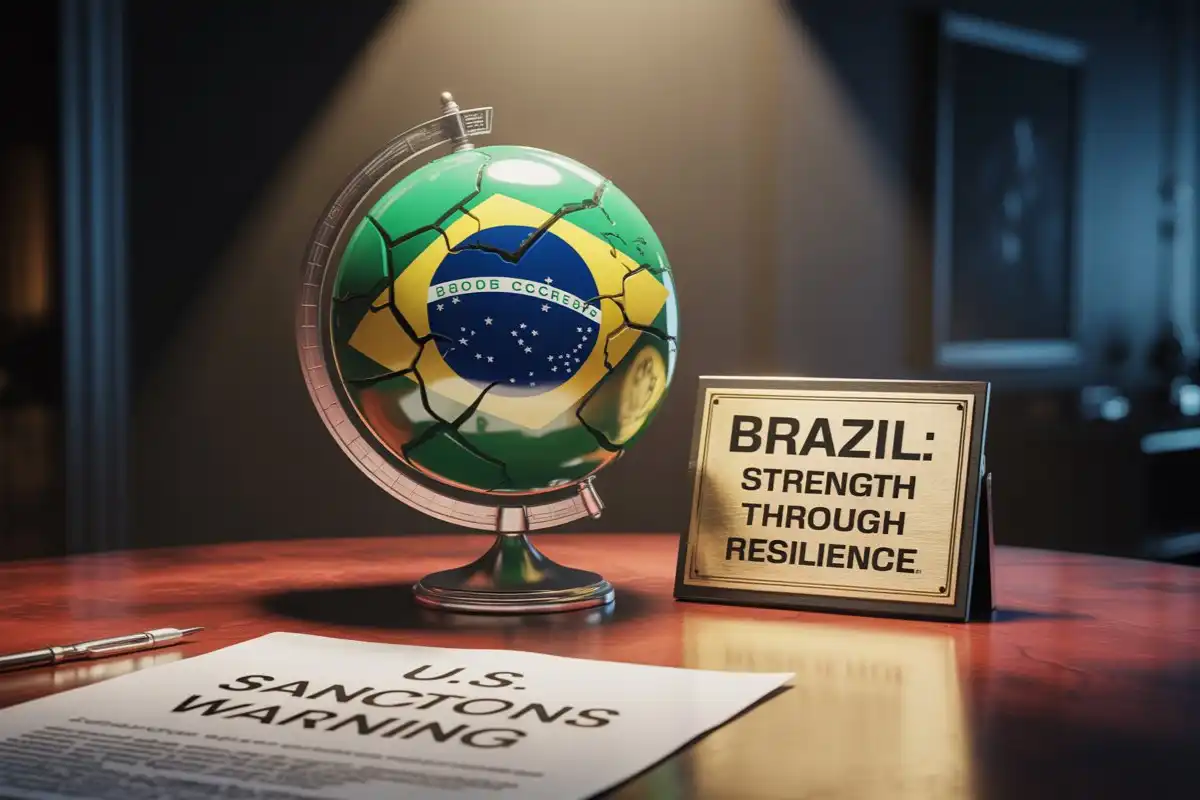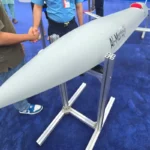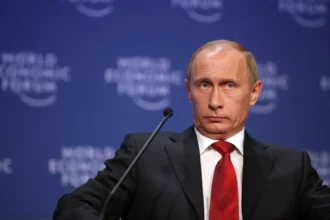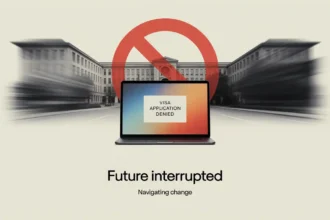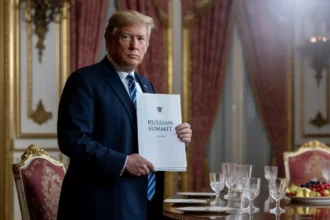Washington, August 14, 2025 – Brazilian Congressman Eduardo Bolsonaro has warned that the United States may escalate economic pressure on Brazil through fresh sanctions and higher tariffs if the Supreme Court continues its current trial of former president Jair Bolsonaro.
Speaking after meetings with U.S. lawmakers and policy advisors in Washington, he said that Washington’s patience is running out and economic retaliation remains “on the table.”
Eduardo Bolsonaro, the son of Jair Bolsonaro, said the U.S. government is closely watching Brazil’s handling of the trial. He warned that the U.S. could expand the list of restricted Brazilian exports and even impose sanctions on individuals connected to the legal proceedings.
He described the current judicial actions as part of an “institutional crisis” that could affect trade relations between the two countries.
Last month, the United States increased tariffs on Brazilian exports, including steel, aluminum, and agricultural products.
These moves have already disrupted Brazilian trade flows, delaying shipments and causing uncertainty in key industries. Economists warn that any additional tariffs or sanctions could further strain Brazil’s economy, driving up costs for exporters and potentially slowing overall growth.
In response, President Luiz Inácio Lula da Silva’s government has introduced a package of subsidies, credit lines, and tax breaks aimed at protecting Brazilian exporters from the worst effects of U.S. tariffs. The administration is also accelerating efforts to diversify trade partners, looking to markets in Asia and the Middle East.
These measures mirror how countries worldwide adapt to geopolitical pressures to protect their economies.
Brazil Responds With Stimulus Measures
Eduardo Bolsonaro’s warnings are part of a broader strategy to generate international pressure on Brazil’s judiciary. His supporters argue that he is defending justice and highlighting political bias in the trial. Critics, however, say that inviting foreign influence threatens judicial independence and undermines Brazil’s sovereignty.
Justice Alexandre de Moraes, who is leading the trial, has emphasized that the court will not be swayed by external pressures. He reaffirmed that the judiciary will continue its work based on the law and the constitution.
Analysts say this confrontation underscores the tension between Brazil’s legal system and international political and economic forces.
Whether the U.S. will follow through with additional sanctions or tariffs remains uncertain. Some U.S. officials are calling for tougher measures to pressure Brazil, while others caution that escalating economic restrictions could push the country closer to rival powers.
On the Brazilian side, the government must balance defending its judiciary with protecting its economy and maintaining international trade relations.
This standoff highlights the complex intersection of politics, law, and economics. It also signals the challenges Brazil faces as it navigates global trade dynamics while upholding domestic legal processes.
The next steps by both the United States and Brazil could shape trade and diplomatic relations for years to come.
The warnings from Eduardo Bolsonaro make clear that economic and political tensions are intensifying. The coming weeks will likely determine whether the dispute escalates into a broader trade conflict or whether diplomacy and strategic measures can prevent further fallout.

